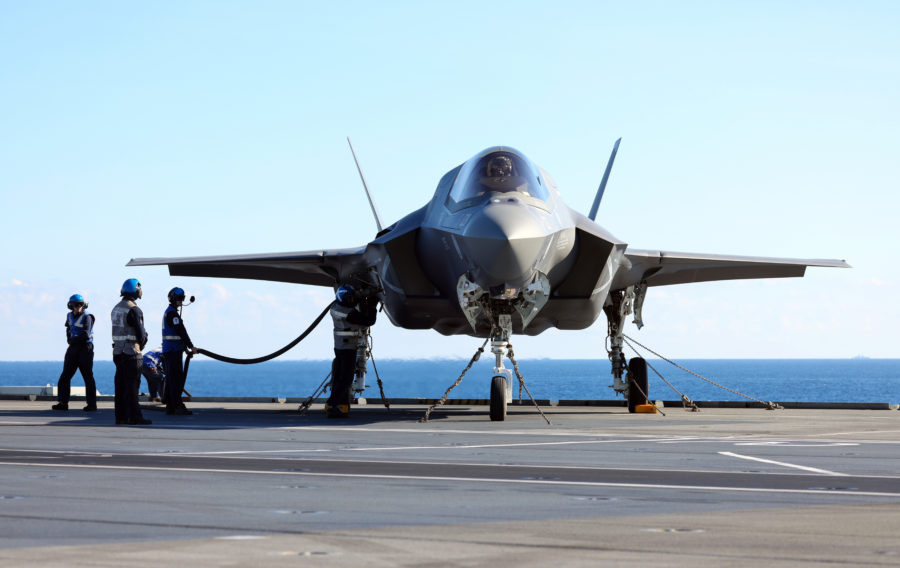
The Strategic Command Strategy has been released outlining the need to transform capabilities to achieve the Ministry of Defence’s strategic ambitions. Here, Defence Online takes a closer look at the strategy.
The UK, like the rest of the world, is facing an uncertain landscape. The distinction between periods of war and peace are blurred. What has become known as the ‘grey zone’, sees states such as Russia and China and other non-state hostile actors pose a risk to the UK’s security and economic prosperity through misinformation, radicalisation and terrorism.
The potential devastation from climate change is well documented and also represents a real threat to nations across the globe.
To meet these ever-evolving challenges, the UK’s defence capability must become more agile, responsive and integrated – the Strategic Command Strategy provides the blueprint as to how Strategic Command will formulate that change.
Why is Strategic Command leading on this?
The scope of Strategic Command’s operations, leading on critical support functions such as medical; intelligence; digital capabilities; and logistic, engineering and equipment support, make it the obvious choice to chart a new path in new ways of operating.
The Strategy makes clear that it is only a statement of intent and not a plan of action. It acknowledges that uncertainty makes this difficult so instead outlines a high level of defence’s destination rather than a definite map to getting there.
The responsibility for its execution lies with the Command’s Executive Committee and to maintain agility amid the changing nature of threats, it will deliver an implementation roadmap to be updated annually that will examine the evolving threats including intent, capabilities, technological advances and a progress report on how the strategy is being delivered.
What are the potential threats to UK security?
The need for agility is paramount with the speed and scale of technological progress across the physical, virtual and cognitive realms.
The Strategy highlights the wide range of state and non-state threats to the UK’s interests in the face of a deteriorating security landscape.
Turning first to the geopolitical environment, Russia is cited as posing the ‘greatest nuclear, conventional military and sub-threshold threat to European security’, while China is described as a ‘complex, systemic, challenge’ and ‘the most significant geopolitical factor in the world today’.
Iran and North Korea area also mentioned as posing regional challenges and threatening global stability through their ongoing nuclear programmes.
Perhaps the area of greatest instability will be through the threat of terrorism with cyberspace and other advanced weapons an increasing concern. Indeed, cyber space and space itself, represent the newest battlespaces alongside more traditional realms of land, sea and air.
Concerns are also raised about the advance of new technology without the ethical standards to safeguard their responsible use.
It’s not only cutting-edge technology that represents danger but the deployment of low-cost capabilities, which can present significant challenges to more elaborate, sophisticated defence capabilities.
Of course, threat and risk to UK security and prosperity is not the sole province of rogue nations or non-state aggressors. The challenges brought about by the climate emergency are global and very real, potentially leading to ‘instability, migration, desertification, competition for natural resources and conflict’.
Technology, data and Integration
Data, technology are highlighted as critical capabilities within the report with their integration across defence a key component of how the Strategy aims to meet the challenge of unpredictability. In the report’s foreword, General Sir Patrick Sanders Commander, Strategic Command, states: “Defence must become agile, responsive and able to act in an integrated way. This means ensuring that every part of Defence can work seamlessly together with other Government departments and our allies and partners overseas.”
Data plays an integral role across all functions of the modern world and this is also the case with defence. The Strategy outlines ambitions to enhance the ability to ‘gather, process, evaluate and transmit data at speed and empower our people to make faster, better decisions’.
This will be achieved through the training of experts to manage the data, fully exploit its benefits, and the use of secure networks to make it readily available to whoever and whenever they needed it.
A number of key activities to help deliver these targets are highlighted:
- Deliver Defence Digital Strategy
- Implement Defence Data Strategy
- Build the Digital Academy
- Exploit the Digital Foundry across the Command
- Improve Data, Digital and Automation skills and capabilities across the Command
For technology, it has been clear since the publication of the Government’s Integrated Review earlier this year to make the UK a science superpower. While this is a cross-government movement and not specific to defence, the MOD have placed science and technology at the heart of its ten-year strategy.
Emerging technologies will be identified, developed, and adopted to enable agility and will extensively utilise synthetic environments to support the development and design of integrated operations.
Strategic Command will link up with cross-Government partners to identify and exploit technologies that can deliver its aims and become a global science and technology leader with high-level digital capabilities and skills.
Again, the report identifies key activities to deliver these targets:
- Establish Defence AI centre
- Use Defence Exercise Programme to exploit experimentation
- Support realisation of MoD S&T Strategy 2020
- Increased use of alternative development and acquisition approaches
- Increased use of synthetics for experimentation and training
- Continue investment in R&D targeted towards resolving the Command’s S&T problem sets
- Complete jHub expansion
Strategic outcomes are positioned as the most important tasks for the Command and a critical, all-encompassing factor to achieving the ambitions of creating and equipping the Integrated Force 2030 as set out in the “Defence in a Competitive Age” Command Paper is integration.
The strategy states: ‘Taken together, the strategic outcomes provide a path to an integrated force that understands its environment in real time, works instinctively with partners and allies, and is equipped to decide and act with agility and precision.’
Indeed, embedding integration is a real focus across all defence and the strategy outlines what successful integration will look like:
- New and existing capabilities are integrated by default
- New military-industrial partnership identifies and pursues technologies and capabilities which benefit the integrated force
- Targeted experimentation and exercise activity in real-world and synthetic environments can turn innovative ideas rapidly into integrated operational capability
Strategic Command will play a key role in fully exploiting open architecture as further investment is made into data, allowing new platforms to be integrated form the outset.
It’s envisaged achievement of these integration objectives will:
- Delivery of the Digital Backbone
- Delivery of MDICP (input into Joint Requirements Oversight Committee and balance of investment decisions on ‘integration-friendly’ capabilities)
- An enhanced relationship with industry
- Focused elements of the Defence’s exercise programme
Conclusion
The need to collect and exploit data across all of defence through advances in technology and its integration to enhance strategic awareness to better inform decision making and provide operational advantage is clear.
More intelligence means creating an ‘information advantage’ to better understand the UK’s adversaries and potentially hostile environments and having the agility to respond appropriately.
There is an acknowledgement that implementing the strategy will not be an easy or quick task but one that is fundamental to Strategic Command’s ability to lead on protecting the UK.
Like the rest of the public sector, these advancements must be done in a sustainable way. Whilst this has obvious environmental benefits, it is hoped that this will also improve capability through a reduced power consumption and electro-magnetic emissions, making it more difficult for the UK adversaries to target them.
Technologies such as artificial intelligence, cryptography, cyber and intelligence have a critical role to play in all this. The government has already made clear the importance it places on science and technology and has made significant investment in research and development and bolstering the UK’s cyber capabilities.
This substantial investment and the implementation of the Defence & Security Industrial Strategy (DSIS) is good news for businesses operating in these sectors. The pivotal role of science, technology, data and cyber in the Integrated Review and the other strategies that will help deliver it, will create huge supply chain opportunities and bolster the UK’s long-term strategic advantage.
image © Crown Copyright
If you would like to join our community and read more articles like this then please click here.
Data grey zone integration Strategic Command Strategic Command Strategy technology







